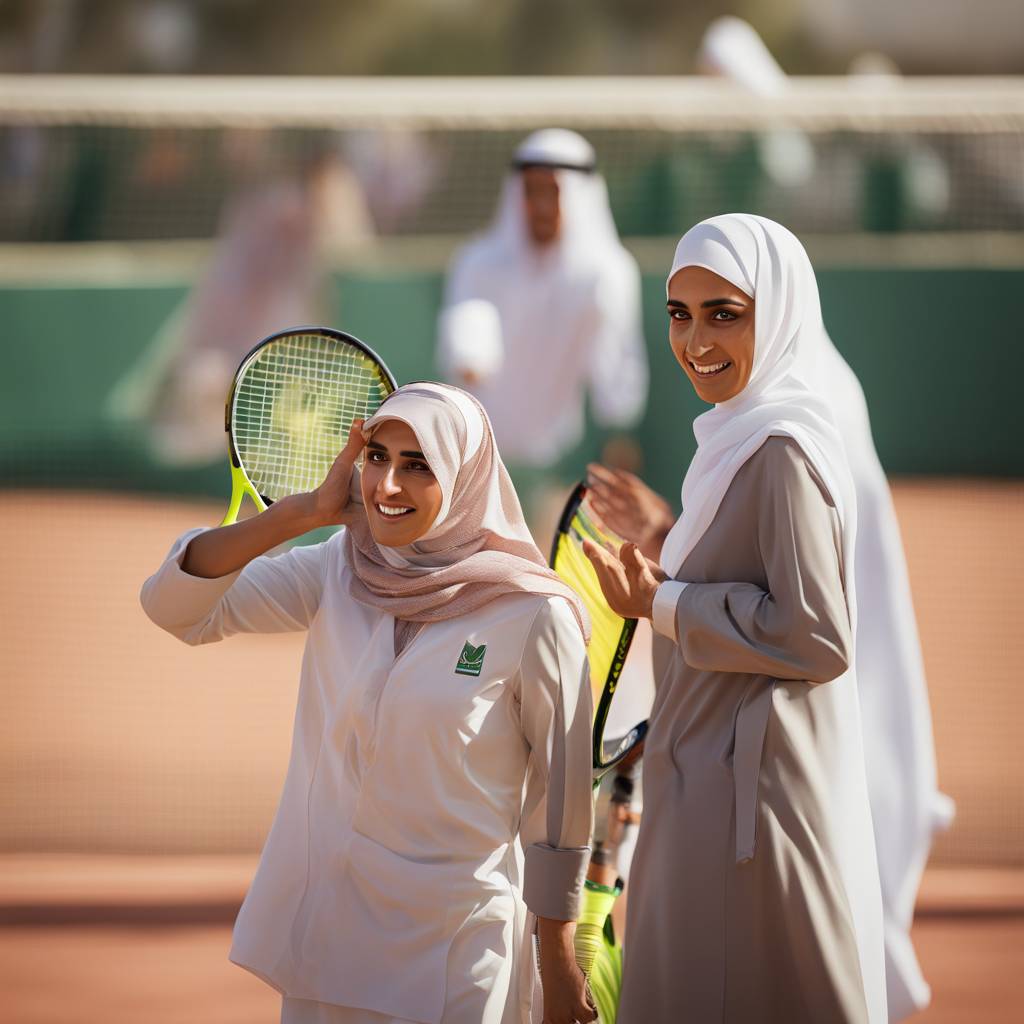Women’s tennis has a long history of advocating for women’s rights, dating back to before Billie Jean King’s famous victory in the “battle of the sexes” 50 years ago. The Women’s Tennis Association (WTA) played a key role in the passage of Title IX, a U.S. law that granted equal opportunities to women and girls in sport and education. However, this legacy was called into question when management of the WTA announced that the women’s flagship finals would be held in Saudi Arabia for the next three years, despite the country’s poor human rights record, specifically concerning women’s rights.
The decision to award the finals to Saudi Arabia was met with criticism from prominent figures in women’s tennis, including Grand Slam champions Chrissie Evert and Martina Navratilova. They argued that hosting the event in a country with a history of repressing women and LGBT individuals goes against the principles of equality and empowerment that women’s tennis stands for. This move makes women’s tennis the latest victim of sportswashing, a tactic used by countries to improve their public image through sporting events.
Saudi Arabia has been actively involved in sports partnerships, including hosting the men’s finals for players under 21 and entering into a strategic partnership with the Association of Tennis Professionals. The country has also made high-profile investments in sports franchises and events, including the Premier League’s Newcastle United and plans to host events such as the FIFA World Cup and Formula One racing. Human Rights Watch has raised concerns about the human rights implications of these investments, prompting calls for more transparency and accountability.
The human rights situation in Saudi Arabia, particularly for women, remains bleak. The country enshrined male guardianship over women in a new Personal Status Law in 2022, which restricts women’s rights in marriage, divorce, and healthcare. Additionally, women are required to obey their husbands upon marriage, perpetuating a patriarchal system that marginalizes women. The arrest of female activists and bloggers for speaking out against the government highlights the ongoing oppression faced by women in the country.
Despite the worsening human rights situation in Saudi Arabia, global tennis bodies such as the WTA, the ATP, and the ITF have not established human rights policies to guide their decisions. Human Rights Watch has called on the WTA to conduct due diligence on human rights risks before awarding events to countries with poor human rights records. The lack of a clear stance on human rights from tennis federations raises concerns about the integrity of the sport and the safety of players, fans, and journalists involved.
In conclusion, the decision to hold the women’s tennis finals in Saudi Arabia has sparked controversy and raised questions about the responsibility of sports organizations to uphold human rights standards. Until the WTA adopts a human rights policy and ensures the safety and inclusion of all participants, hosting events in countries with poor human rights records, such as Saudi Arabia, remains a contentious issue. Advocates for women’s rights, including prominent figures in women’s tennis, continue to push for greater accountability and transparency in the decisions made by sports federations.













